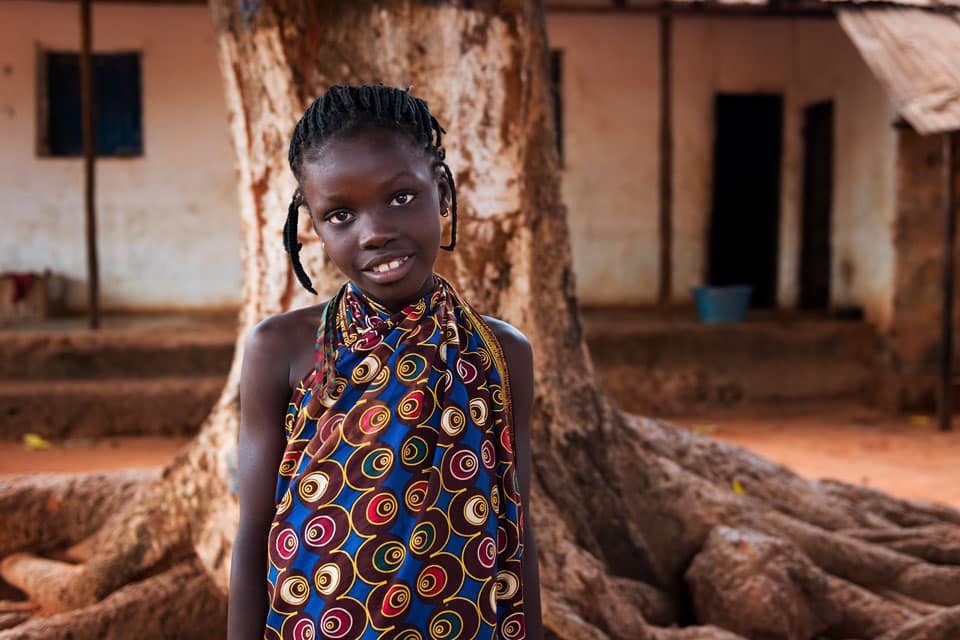Report: Countries with highest numbers of child marriage, 2023

Millions of young females are subjected to a severe infringement of their human rights through child marriage. It robs them of their schooling, wellness, security, and autonomy. It also puts them in danger of family violence, premature childbirth, and maternal death. UNICEF reports that over 650 million women were married before they reached 18 years old.
Despite laws in most countries against early marriage, insufficient enforcement and low awareness mean that boys and girls who enter into such unions can face similar struggles. These marriages deny children their rights and impede their development.
The complexity of the causes behind violence against children, such as gender inequality, financial turbulence, crises, and educational deficiencies, intertwines with one another so that early mistreatment increases the possibility of future injustice.
Compiling data from multiple credible sources, CEOWORLD magazine’s Executive Council’s report examines the 17 countries with the highest prevalence of child marriage across the globe, utilizing worldwide child marriage statistics. We categorized countries mentioned in these sources, gathered data, and assigned points to each, methodically structuring the information with rankings. The final tally of countries with the highest child marriage rates was determined after a comprehensive study. Drawing from UNICEF’s State of the World’s Children report, this research focused on the percentage of women aged 20 to 24 who were either married or in a union before the age of 18.
- Niger: Niger tops the list as the country with the highest prevalence of child marriage worldwide. In this West African nation, over 75 percent of girls under 18 are married, and nearly 30 percent of them are married before the age of 15. Factors like food shortages, a challenging natural environment, and recurring droughts force some families to marry their daughters to wealthier men for survival and in hopes of improving their economic and social status. Child marriage is even used by families to “settle debts.”
- Central African Republic: In Central Africa, specifically the Central African Republic, economic challenges drive child marriage. The country’s low GDP and widespread poverty lead many families to marry their daughters in exchange for a bride price, seen as a way to ease the financial burden of raising a girl. As a result, 61% of girls in the Central African Republic marry before turning 18, with 26% marrying before 15. Additionally, 28% of boys in the country marry before 18.
- South Sudan: In South Sudan, child marriage is driven by economic and food instability. Families in extreme poverty often marry off their daughters to secure dowries, which can be money, gifts, or cattle. This is crucial for survival, as cattle are now a form of currency due to rising cattle theft and food insecurity. Unfortunately, some girls are forced into marriages as if they were commodities. Latest data from 2010 shows that 52% of South Sudanese girls marry before 18, with 9% married before 15. Notably, 57% of the population in South Sudan is under 18.
- Chad: Chad holds one of the highest prevalences of child marriage globally, affecting a staggering 70% of married girls. This detrimental practice is particularly widespread in rural areas and perpetuates the cycle of poverty. A significant 61% of girls in Chad marry before they reach the age of 18, with 24% married before their 15th birthday. In contrast, 8% of boys in Chad are married before turning 18.
- Mali: In Mali, 54% of girls are married before they reach 18 years of age, and 16% are married prior to their 15th birthday. Conversely, 2% of boys in Mali enter into marriage before their 18th birthday. Ending child marriage in Mali could potentially yield significant economic gains, as indicated by a 2017 study conducted by the World Bank and ICRW.
- Bangladesh: According to a Unicef report, Bangladesh has the highest incidence of child marriage in South Asia. In Bangladesh, 51% of girls enter into marriage before they reach their 18th birthday, with 22% marrying before the age of 15. Notably, a small percentage of boys (4%) are also married before turning 18. Child marriage is more prevalent in rural areas, where 60% of girls are wed before the age of 18, compared to 55% in urban areas.
- Mozambique: Mozambique grapples with one of the world’s highest child marriage rates, affecting nearly half of its girls. Specifically, 48% of women in Mozambique between the ages of 20 and 24 entered their first marriage or union before turning 18, and 14% did so before their 15th birthday. Gender inequality and poverty play significant roles in driving child marriage, with half of the country’s population residing in impoverished conditions.
- Burkina Faso: Burkina Faso currently harbors 3 million child brides, with 500,000 of them marrying before the age of 15. Unfortunately, the nation has not shown substantial progress in reducing child marriage over the past quarter-century, with the prevalence remaining static at a concerning 52%. This means that more than half of all girls in Burkina Faso are married during their childhood. In addition to child marriage, girls in Burkina Faso also face the challenge of female genital mutilation (FGM).
- Guinea: Child marriage rates in Guinea, while showing some decline, remain high. Among women aged 18 to 22, a staggering 51.1% entered marriage during their childhood. Notably, this prevalence has decreased over time, especially concerning very early marriages, occurring before the age of 15. Child marriage in Guinea is associated with lower socioeconomic status, reduced educational attainment, and increased labor force participation for girls. However, it’s important to recognize that these connections are correlations rather than necessarily indicating causal relationships.
- Ethiopia: Between 2005 and 2016, Ethiopia witnessed a decrease in child marriage rates, with the percentage of young Ethiopian women married before age 18 declining from 49% to 40%, a noteworthy 18% reduction. The percentage of women married before age 15 experienced even greater reductions, declining by 26% during the same period.
- India: Child marriage is deeply ingrained in India’s societal and religious norms and affects all segments of the population. India accounts for over 40% of global child marriages, with nearly half of all girls marrying before 18, and 47% of women aged 20 to 24 having been married before turning 18. Although there has been some progress, as reflected in a decrease from 47% to 27% in child marriage rates, it remains a significant issue.
- Somalia: Child marriage contributes significantly to adolescent pregnancies in Somalia, with 36% of girls entering into marriage before they reach their 18th birthday, and a concerning 17% getting married before turning 15.
- Madagascar: Madagascar has one of the world’s highest rates of child marriage, significantly impacting girls. Here, 40% of girls marry before their 18th birthday, and 13% are married before turning 15. Interestingly, the country also sees a relatively elevated rate of early marriage among boys.
- Brazil: Recent data shows that 36% of girls in Brazil enter into marriage before the age of 18, and 11% of them are married before reaching 15. Brazil stands out in Latin America for having the highest number of child marriages.
- Democratic Republic of Congo: In the Democratic Republic of Congo, 29% of girls are married before their 18th birthday, with 8% married before the age of 15. Strikingly, 6% of boys in this country also experience child marriage. This high prevalence is partly due to cultural norms that emphasize large families.
- Nepal: Unlike many other South Asian countries, Nepal faces widespread child marriages affecting both boys and girls. In Nepal, around 37% of girls are married off before their 18th birthday, while one out of every ten men between the ages of 20 and 24 have entered marriage during their childhood.
- Malawi: Approximately 42% of girls in Malawi enter into marriage before they reach the age of 18, and shockingly, 9% even marry before turning 15. It’s essential to note that child marriage also affects some boys in the region.
In sum, child marriage is a global problem that affects the lives of many, particularly young girls. It is caused by a combination of economic hardship, cultural practices, and gender discrimination. To successfully combat this issue, concerted efforts must be taken at local, national, and global levels in order to protect children’s rights and guarantee their safety and future prospects.
Have you read?
Revealed: Top Environmental Innovative US States, 2023.
Report: Best Countries for Cyber Security Professionals, 2023 (Average Salary).
Best CEOs in The Global Video Streaming Industry, 2023.
Ranked: World’s Best-Selling Champagne Brands, 2023.
Ranked: Top Companies in Sports Tech, 2023.








